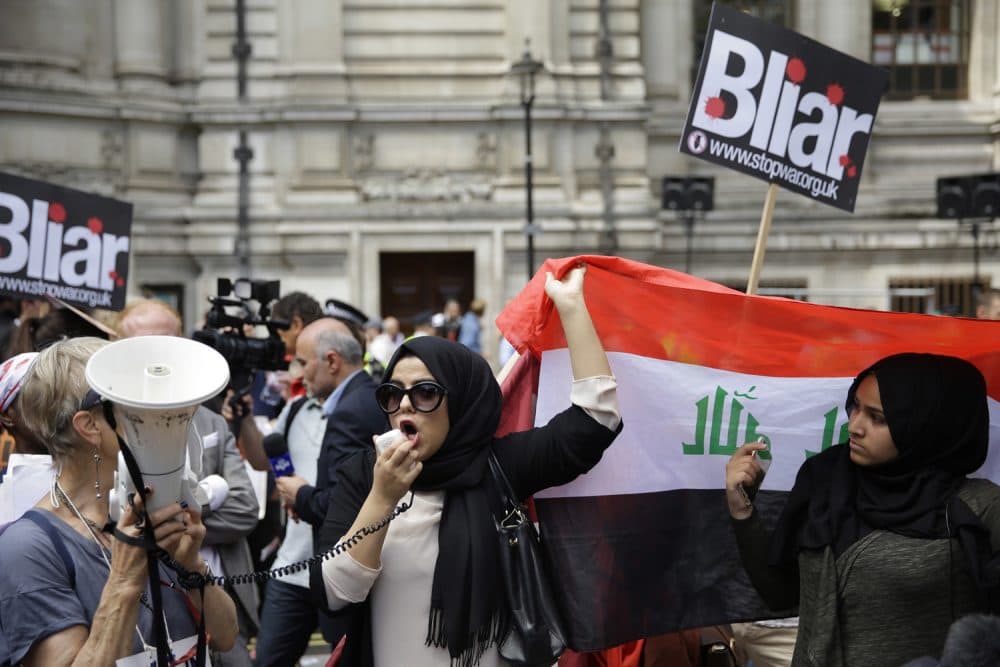Advertisement
Chilcot Inquiry Slams Blair Government For Iraq Invasion
Resume
After more than seven years of investigation and 2.6 million words, the British government's Iraq Inquiry has been released for public consumption. The report, chaired by Sir John Chilcot, suggests the invasion of Iraq was not absolutely required, and that former UK Prime Minister Tony Blair misled the British public in his presentation of the pending conflict. Steven Erlanger, London bureau chief for the New York Times, joins us from London with a close look at the political and social impact of the Chilcot Inquiry.
"The toughest criticism is that the UK government mismanaged the process," Erlanger told us. "They didn't check their assumptions and went along with Washington, and Mr. Blair in particular overestimated the validity of the intelligence he was given and underestimated how little influence he would have over President George W. Bush."
The lengthy investigation process reflects the ongoing British unease with the war in Iraq, as well as the belief there that the UK's involvement with the American-led invasion was largely based on faulty intelligence and blind loyalty to one ally over the interests of others,
"I don't think it changes anything about our understanding of the Iraq War," Erlanger said. "In the end, I think Blair was taken for a ride. It's been very painful here."
Read The Full Iraq Inquiry Here
This segment aired on July 6, 2016.